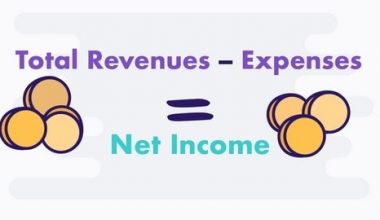Most businesses’ costs are tax deductible either partially or fully, a lot of business owners do a tax write-off on so many expenses to be able to gain more credits on tax and reduce the total amount of tax they need to pay. In this article, we are going to be looking at everything about tax write-offs, how tax write-offs work, tax write-offs donations, self-employment tax write-offs, and everything about business tax write-offs in Canada. Now, let’s get started
Tax Write-Offs
Generally, tax write-offs are broadly a means through which an annual tax bill reduces. Also, it is a business expense or an accounting action that decreases the value of a business asset while also decreasing a liabilities account simultaneously. Additionally, a write-off doesn’t totally eliminate the value of an asset but partially reduces it.
What Are Write-Offs In Accounting?
In accounting a write-off happens when the asset of an organization or a company turns into cash. Overall, it happens when the value of the company’s asset is eliminated and removed from the book. An asset of an organization is written off when the recorded amount is transferred to an expense account.
How to Do Tax Write-Offs Work
A tax write-off is an accounting action that reduces the value of an organization’s or individual’s assets. It is a helpful way to lower your taxes. However, it is very crucial to have it at the back of your mind that not all expenses can be written off.
Here is how to calculate a tax write-off; it is the division of the total amount of write-offs by the total amount of loans. There are two types of ways in which tax write-offs work and what they do. These two types are:
- Personal write-offs
Personal write-offs are deductions that an individual can take on their taxes to itemize their tax.
- Business write off
It is a deduction made on taxes by an organization or a company.
What is Write-Off Debt?
These are debts that are no longer accepted for payment. In order words, they are not expected to be paid. Also, it means that no payments are due.
How Much Tax Loss Can I Write Off?
Recognizing a capital loss in any business is one of the good ways of tracking your capital gains taxes too on the return of your tax. A capital loss is counted if it’s realized. So, how much tax loss can be written off is determined by you and also, affects your capital losses or gains.
How Many Losses Can You Write Off in Canada?
Fifty percent of your gain is taxable and deducted as your loss on your tax return. The fifty percent used to make this calculation is called the inclusion rate. It is a rate individuals use to determine the allowable capital losses and the capital gains that are taxable. For instance, if you have an income of five thousand dollars as a capital loss it can be used to offset your capital gains in the current year.
How Much Loss Can You Claim on Taxes in Canada?
If you have a loss, it surely becomes part of the computation of your net capital loss for the current year. You can make use of the net capital loss to lower your taxable loss in the future.
Can I Claim Groceries on My Taxes in Canada?
Yes, in general, if you desire to claim groceries for the purpose of business, you can go ahead with it. In essence, it is left to you to determine what you want to do with it and how you require your taxable income to be reduced or deducted.
Can You Write Off Clothes for Work in Canada?
The answer is no, just as you cannot deduct costs from other expenses, you cannot also deduct or write off your taxes from clothes. Here is the list of things that you can write off:
- Home office expenses.
- Use of mobile phones and calls for employment purposes.
- Office Supplies
- Loan and credit card interest
- Vehicle expenses and costs
- Insurance premiums
- Meals for business purposes
- Costs for startup
- Membership and subscription
- Travel for business purposes
- Self-employment taxable income
- Medical insurance expenses
- Personal dental insurance
Tax Write Off Donations
Tax write-off donations are contributions of money or products made to tax-exempt organizations, such as charities, to help lower your taxes. You must receive or collect nothing in return as gifts to claim a deduction for charitable donations on your taxable income. Thus, tax write-off donations are charitable donations that reduce the deduction on your taxable income and deduct up to sixty percent of your gross income via your contributions or donations.
What is the Qualified Charitable Contribution to Make?
Understanding the qualified charitable contributions, or donations begins with understanding the required minimum distributions to make and helps you to write off or lower the tax you pay. A qualified charitable contribution allows people who are at the age of seventy and above to make a donation of one thousand dollars and above to one or more charities and organizations directly from a taxable individual retirement account(IRA) instead of the required minimum distributions.
Who Can Make a Qualified Charitable Distribution?
A qualified charitable distribution is mainly for married couples and is made by individuals at the age of seventy and above with a contribution rate of one thousand dollars.
The Guidelines of Tax Write-Off Donations
- Your donations will only be charitable and qualify for a tax write-off only if you give them to tax-exempt organizations. In essence, Make your charity donations to the right and qualified organizations.
- While making tax write-off donations, make sure to keep a good record of everything and how you contributed. Keep documents of your contributions to the organization, it will enable your taxable income to reduce.
- Volunteering for the right and qualified organizations can also be counted as tax write-off donations. So, don’t miss out on tax deductions for volunteering.
Things to Remember about Tax Write-Off Donations
- Make a donation to a qualifying organization. Make sure to verify the organization with the right IRS Exempt Organizations select check tool. Also, before you donate anything to an organization, ask how much donations will they deduct from your tax.
- Every contribution must be well documented and kept for security reasons.
- Keep important receipts.
Self-Employment Tax Write-Offs
Self-employment tax write-offs are the social security and Medicare taxes that every business owner must pay. This includes owners of small businesses, freelancers, and independent contractors. The self-employment tax write-offs rate is about 12.4 percent to 15.3% for social security and about 2.9 percent for Medicare.
Self-Employment Tax Write-Offs Benefits
If you are self-employed, it will be best to review everything you can deduct and the benefits you can get every year, in order to make your business very profitable. Here are a number of write-off benefits you do not want to miss out on:
- Deduction on home offices.
- Deduction phone and internet bills.
- Interest deduction.
- Deduction on the use of vehicles.
- Removal of dues and publication.
- Rent deduction.
- Education deduction.
- Deduction on business insurance.
- Deduction on start-up capital.
- Marketing and advertising deduction.
- Deduction on retirement plans.
- Business Tax Write-Offs Canada.
Equipment that Helps to Lease Costs
These are the list of equipment you can use:
- Mobile phone.
- Fax machines.
- Computers or systems.
- Similar equipment that enables leasing.
Business Tax Write-Offs in Canada
With the approval of the Canada Revenue Agency, you can deduct a large number of expenses. Also, in Canada tax write-offs can reduce your federal tax bracket, decreasing the total amount of income tax you need to pay depending on the area you live in, Small businesses are also eligible for different tax write-offs. These are:
Business Tax Write-Offs in Canada for Small Businesses
- Home office expenses are the most common business tax write-offs in Canada for small businesses. You can claim a number of different costs whether on the counter of a kitchen or on big offices. The amount of write-off you can make relies on the rate of the space of your office compared to the size of your home. If you work directly from your home, you write off maintenance, home insurance, utilities, computers, mobile devices, mortgage interest on your residence, etc.
- Small businesses can make deductions or write off home-based insurance.
- Business tax write-offs in Canada for small businesses also include meals and entertainment. As a business owner, you can write off expenses that will help your business generate more income to enable you to meet your desired income before the end of the month.
- Also, they can make write-offs on Advertising and marketing costs, toll charges, fuel, and oil cos.
Is Business Loss Deducted in Canada
The answer to this question is yes. It is very important to understand what the concept of business loss is, so you can fully understand if it can actually be deducted from businesses. A business loss is spending more than the appropriate income you earn.
Also, business loss occurs when you are incapable of paying your bills. You can deduct expenses and other cost items that your business uses both directly and indirectly to provide products and services to clients. In addition, you can also deduct some costs that preceded the business operations. There is a list of things you can deduct and things you cannot deduct. These are:
- You can make deductions on your license, tax, and fees, but you cannot make a deduction on dues of club membership.
- You can deduct expenses on the indirect items used by your business
- You can deduct the maintenance, electricity, insurance, and interest costs on mortgages.
- You can also deduct other benefits like the Canada employment insurance premiums and pension plan you pay to staff.
- Deduction on the rent paid for the properties you used in your business.
- Also, you can deduct fees on administration and management.
- Bank and interest charges.
- Deductions on the tax of the properties for the building and the venue where you are located at.
- You can also deduct your bad debt.
Ways to Know if you are at Loss
- Not having enough money to pay or clear your debt.
- When you fail to meet your target. For example, you are supposed to sell fifty bags in a month and you were only able to sell ten. It reduces your expected income for the month.
- Another way to know you are at a loss is when your bank account is negative instead of positive and you don’t even have any idea how to make it positive again.
Basic Things to Do When you are at Loss
- Curtail the way you spend money.
- Increase in sales.
- You can also increase the charges of your product or services to meet your expected income.
- Ensure to look for strategies on how to get more customers.
- Sale more of your products.
- Reduce your expenses.
- Do away with assets you no longer make use of.
- Reduce the number of drawings you take from the business.
- Get positive advice.
Conclusion
In conclusion, tax write-offs are broadly a means through which an annual tax bill is reduced. Also, it is a business expense or an accounting action that is used in decreasing the value of a business asset while also decreasing a liabilities account simultaneously.
Related article
HOW TO GET A LOAN WITHOUT A JOB: Alternatives for People Without Jobs
BAD DEBT EXPENSE – Definition, Estimation, and Calculation
TAX RIGHT OFF: How to Claim It, Car, Business & Donation
CHARITABLE CONTRIBUTIONS: Strategies, Deductions & Tips to Known






